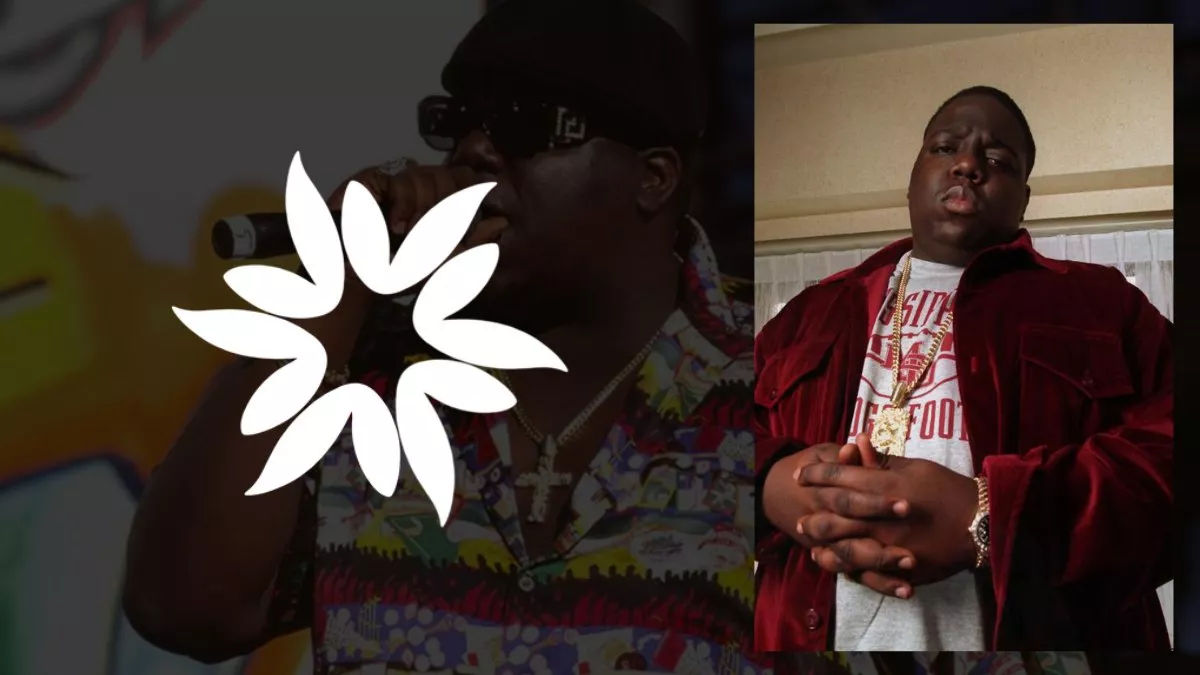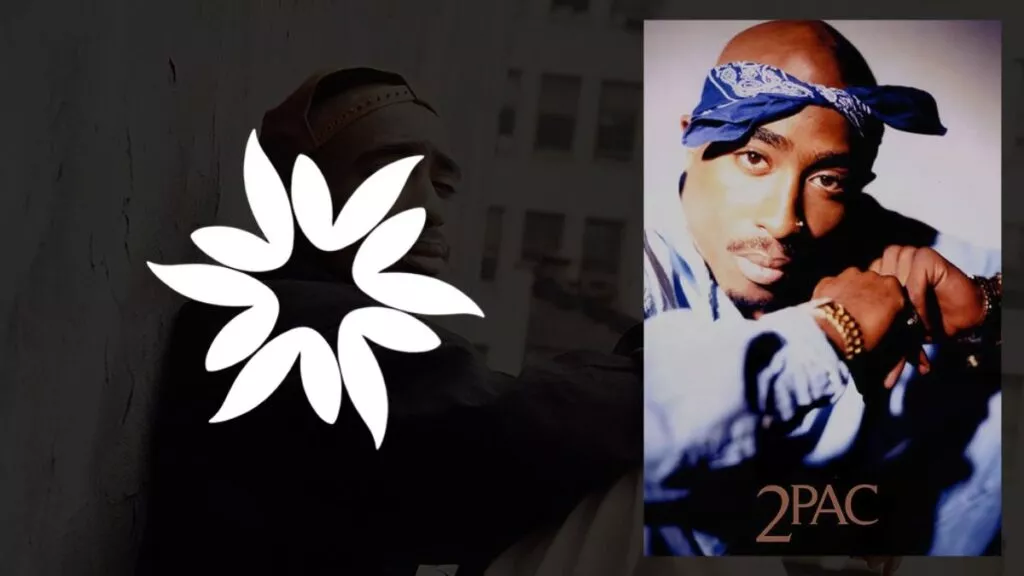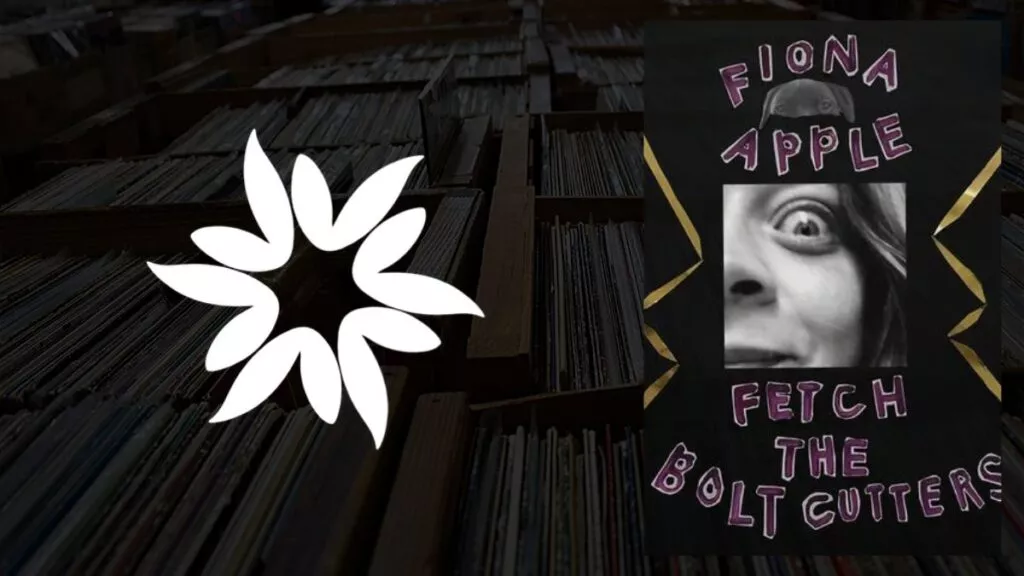If you’re into hip-hop, there’s no way you haven’t heard of The Notorious B.I.G. (also known as Biggie Smalls or simply Biggie).
You can’t deny that his music is timeless, his flow unforgettable, and his impact undeniable.
But what exactly makes Biggie such a legend?
Is it his lyrical genius, larger-than-life persona, or ability to connect with fans on a deeply personal level?
Well, it’s a bit of all that and more.
The man was more than a rapper; he was a storyteller, a street poet who turned his struggles into anthems.
And his catalog of songs tells the story of someone who rose from the harsh streets of Brooklyn to become one of the biggest names in music.
So, let’s take a trip down memory lane and explore some of Biggie’s most iconic tracks that shaped his legacy and the hip-hop world forever.
Key Takeaways
- Biggie’s music captures the highs and lows of his life, from overcoming adversity to personal struggles that followed his success.
- Biggie’s songs cover many themes, from street life and struggle to celebration and success.
- Even after his tragic death, his influence on rap and pop culture remains undeniable, making him a true legend in the music world.
1. “Juicy” – The Rags-to-Riches Anthem
We’ve got to start with “Juicy”, right? It’s at the top of the best biggie songs, and for good reason.
It’s basically the Bible of Biggie’s come-up story.
“Juicy” was the first single from Biggie’s 1994 debut album, Ready to Die. And it’s a track that perfectly captures his journey from struggle to success.
He was just a kid in Brooklyn, facing the realities of life on the streets and doing whatever he could to survive. But his talent and drive eventually led him to fame and fortune as a rap superstar.
If you know Biggie, you know this song.
The song starts with the iconic line, “It was all a dream, I used to read Word Up! magazine…” you’re immediately pulled into Biggie’s world.
Sampling Mtume’s “Juicy Fruit,” the beat is smooth, almost nostalgic, while Biggie recounts his struggle growing up, his aspirations, and how he escaped poverty.
You can feel the raw emotion as he talks about his journey, the highs, the lows, and ultimately, his triumph.
What’s amazing about this track is that it’s an anthem for anyone who’s ever had big dreams but started with nothing.
Biggie’s storytelling is so vivid that by the end, you feel you’ve lived his life alongside him.
Plus, the chorus, “You know very well who you are, don’t let ‘em hold you down, reach for the stars,” is motivation at its finest.
And if there’s one Biggie track that resonates with the masses, it’s “Juicy.”
2. “Big Poppa” – The Definition of Smooth
After the success of “Juicy,” Biggie switched gears with “Big Poppa,” giving us a whole different vibe.
If “Juicy” was Biggie’s victory lap, “Big Poppa” was the afterparty.
Released as the second single from Ready to Die, this track embodies Biggie’s smooth, laid-back persona.
This track showed Biggie had more than lyrical chops—he had charisma for days.
“Big Poppa” is essentially the ultimate celebration track.
The song samples The Isley Brothers’ “Between the Sheets,” the beat is smooth, seductive, and downright irresistible.
And “Juicy” takes a different approach: This isn’t the gritty street stuff we hear in some of Biggie’s other tracks; he shows off his charm and confidence.
The lyrics focus on his newfound fame, the ladies, and the good life he lived after making it big.
But here’s the thing about Biggie: he makes it sound classy even when boasting.
The way he delivers lines like “I love it when you call me Big Poppa” is effortless.
He’s almost crooning in a way that appeals to both hardcore rap fans and the mainstream crowd.
It’s no wonder the track earned a Grammy nomination and peaked at #6 on the Billboard Hot 100.
Plus, the music video for “Big Poppa” is just as laid-back and luxurious as the track itself.
It’s basically a glimpse into Biggie’s life of parties, champagne, and good times with friends.
This is Biggie at his most relaxed, and it’s clear why this track became a party anthem.
3. “Hypnotize” – The Chart-Topping Banger
“Hypnotize” was the last song Biggie released while he was alive, and it’s a banger.
Released in 1997 as the lead single from Life After Death, this track shot straight to the top of the charts, making Biggie the first artist to achieve a posthumous #1 hit on the Billboard Hot 100.
What makes “Hypnotize” such a hit?
The beat plays a huge part, that’s for sure.
It’s a funky, bass-heavy sample of Herb Alpert’s “Rise,” and from the moment it starts, you can’t help but bob your head.
Then Biggie comes in with his signature flow, which is full of swagger and clever wordplay.
He rides the beat effortlessly, and his lyrical references to pop culture, fashion, and life in the fast lane are both braggadocious and playful.
The chorus, “Biggie, Biggie, Biggie, can’t you see? Sometimes your words just hypnotize me,” is insanely catchy, and the whole track just oozes confidence.
It’s Biggie in his prime, at the top of his game, before the world lost him too soon.
The music video for “Hypnotize” takes it up a notch with high-speed chases, luxury yachts, and all the bling you’d expect from a 90s rap video.
It’s Biggie as the larger-than-life rap superstar, and it’s impossible not to get caught up in the track’s energy.
4. “Mo Money Mo Problems” – The Price of Fame
After Biggie’s death, “Mo Money Mo Problems” became an anthem.
Released posthumously in 1997, it was the second single from Life After Death and featured Puff Daddy and Mase.
The track, built around a sample of Diana Ross’s “I’m Coming Out,” is upbeat and feels like a party track—but when you listen closer, there’s more going on.
Lyrically, Biggie talks about the flipside of success.
The more money you make, the more problems you face.
Looking back, that idea becomes even more meaningful given the circumstances surrounding Biggie’s life and death.
His verse touches on the pressures of wealth, the jealousy of others, and the sense that success can attract danger.
But despite the serious message, the song is fun and infectious.
The music video, directed by the legendary Hype Williams, is flashy and filled with over-the-top 90s fashion and style.
Puff Daddy and Mase’s verses keep the vibe light, while Biggie’s verse grounds it in reality.
The song reached #1 on the Billboard Hot 100, making it Biggie’s second posthumous chart-topper.
“Mo Money Mo Problems” perfectly blends a catchy beat, fun vibe, and deeper meaning.
In a nutshell, it’s a reminder that success isn’t all glitz and glamour—sometimes, it brings its own set of struggles.
5. “Notorious Thugs” – Biggie Steps Out of His Comfort Zone
When you think of Biggie, you probably think of his smooth, laid-back flow.
But in “Notorious Thugs,” Biggie steps out of his usual style and dives headfirst into something completely different.
This track from Life After Death is a collaboration between Biggie and Bone Thugs-N-Harmony, and it stands out for many reasons.
First of all, Biggie rapping in Bone Thugs’ rapid-fire style is something no one expected, but boy, did he deliver.
Known for his slower, more deliberate flow, Biggie adapts effortlessly to the faster pace without missing a beat.
It’s like he’s saying, “I can do this too,” and he absolutely nails it.
Biggie was able to match the speed and harmonies of Bone Thugs-n-Harmony while still delivering his signature gritty lyrics. And this really shows how versatile he was.
Lyrically, Biggie flexes hard on this track.
He discusses his status in the rap game and subtly attacks his beef with other artists, including Tupac, though he never mentions names.
There’s no denying it: Biggie handles these conflicts gracefully. He avoids being petty or overly aggressive, which shows his maturity as an artist.
“Notorious Thugs” isn’t only a technical showcase for Biggie—it’s a defining moment in 90s gangsta rap.
By collaborating with Bone Thugs-N-Harmony, one of the most unique rap groups of the era, Biggie proved that he could thrive in any style or subgenre.
This track further solidified his reputation as one of the most adaptable and talented rappers of all time.
6. “Party and Bullshit” – Biggie’s First Big Splash
Before Biggie became a household name, he made his first major mark on the hip-hop world with “Party and Bullshit.”
Released in 1993 as part of the soundtrack for the movie Who’s the Man? this track perfectly introduces Biggie’s talent.
It’s brash, full of energy, and packed with his signature of humor and streetwise storytelling.
“Party and Bullshit” is all about, well, partying and causing trouble, but it’s also more than that.
It reflects Biggie’s life at the time—navigating between carefree fun and the harsh realities of the streets.
The track’s raw energy and rebellious attitude made it a fan favorite, and it quickly became a staple in Biggie’s early performances.
Undeniably, this is one of the best Biggie songs, as he blends humor with gritty realism in his lyrics.
And he’s not just talking about partying for the sake of partying—he’s painting a vivid picture of street life and the duality of his persona.
He’s the life of the party, but he’s also seen some dark times, and that balance makes the track feel authentic.
Even though “Party and Bullshit” wasn’t a massive commercial success compared to some of his later tracks, it was an important stepping stone in Biggie’s career.
Let’s face it: this track showed that he could be a force in hip-hop and helped pave the way for the massive success that followed.
7. “One More Chance (Remix)” – Biggie’s Romantic Side
“One More Chance (Remix)” is another one of Biggie’s massive hits.
The original version, found on Ready to Die, is raw, explicit, and gritty, but it’s the remix that made waves on the charts, peaking at #2 on the Billboard Hot 100 in 1995.
The remix, produced by Puff Daddy, takes a smoother, more soulful approach, sampling DeBarge’s “Stay With Me”.
It also features vocals from Biggie’s then-wife, Faith Evans, giving the track an R&B vibe accessible to a broader audience.
And the result is a song that balances hip-hop grit with a touch of romance.
Biggie’s lyrics are playful and charming, focusing on his attempts to win back a woman’s affection.
It’s, for sure, the kind of track that shows off his softer side without sacrificing his tough image.
The music video is a who’s who of 90s hip-hop, with cameos from heavy hitters like Mary J. Blige, Aaliyah, and Puff Daddy.
“One More Chance” is one of those songs that showcases Biggie’s versatility.
He could deliver hardcore street rhymes, switch gears, and create something smooth and soulful.
It’s a reminder of why he was so successful—he had the talent to do it all.
8. “Gimme the Loot” – A Masterclass in Storytelling
Biggie’s ability to tell a story through his music is one of the reasons he’s considered one of the greatest rappers of all time, and “Gimme the Loot” is a prime example of that.
Released as part of his debut album Ready to Die, this track is a gritty, unapologetic look at the life of a street hustler.
But it stands out because Biggie uses two distinct voices to tell the story.
In “Gimme the Loot,” Biggie plays himself and a younger accomplice, switching between the two characters throughout the song.
This back-and-forth dialogue creates a dynamic, almost cinematic narrative that draws the listener in.
It’s like listening to a short crime film, with Biggie’s sharp lyrics painting a vivid picture of life on the streets.
The track is dark, violent, and raw, with references to armed robbery and survival by any means necessary.
Although it’s not for the faint of heart, it’s a powerful example of Biggie’s commitment to reflecting the harsh realities of his upbringing.
His ability to switch between characters seamlessly also highlights his creativity and technical skill as a rapper.
“Gimme the Loot” is one of the grittier tracks on Ready to Die, and it stands in contrast to some of the more radio-friendly songs like “Juicy” and “Big Poppa.”
But this duality makes Biggie such a compelling artist—he could be both the charming, larger-than-life star and the street-hardened criminal, and he made both personas feel authentic.
9. “Ten Crack Commandments” – Biggie’s Streetwise Guide
If there’s one track that shows Biggie’s ability to mix street smarts with lyrical genius, it’s “Ten Crack Commandments.”
Released as part of Life After Death, this song is essentially a step-by-step guide for surviving in the drug game, based on the rules Biggie followed as a hustler.
The beauty of “Ten Crack Commandments” lies in its structure.
Unlike most rap songs, it doesn’t follow the typical verse-chorus format.
Instead, Biggie delivers each commandment in sequence, offering practical advice like “never let no one know how much dough you hold” and the iconic “never get high on your own supply.”
The track’s raw authenticity comes from Biggie’s experience in the drug trade before becoming a rap star.
He’s not glorifying the lifestyle—he’s offering a cautionary tale, laying out the rules that he believes will keep you alive and successful.
The track feels almost educational, and many listeners have drawn parallels between Biggie’s commandments and broader life or business principles.
In a nutshell, “Ten Crack Commandments” is a streetwise manifesto, a look into the harsh realities of life in the drug trade.
It’s also a reminder that, despite his success, Biggie never forgot where he came from. He used his platform to reflect on those experiences with brutal honesty.
10. “Suicidal Thoughts” – A Dark, Haunting Confession
To close out Ready to Die, Biggie gave us one of his catalog’s most haunting and introspective tracks: “Suicidal Thoughts.”
This song is structured as a phone call between Biggie and Puff Daddy, where Biggie confesses his deep despair and feelings of guilt and regret.
It’s dark, raw, and unflinchingly honest—a stark contrast to the bravado seen in some of his other tracks.
Throughout the song, Biggie opens up about his rise to fame’s emotional toll on him.
He expresses feelings of worthlessness, saying he’s done terrible things and doesn’t deserve to live.
The song ends with the chilling sound of a gunshot, leaving listeners with the unsettling feeling that Biggie may have acted on his suicidal thoughts.
One thing that makes “Suicidal Thoughts” so powerful is its vulnerability.
It’s not the kind of track you’d expect from someone who, on the surface, seems to have it all.
But that’s why Biggie’s music is so compelling—he’s not afraid to show both sides of himself.
Beneath the swagger and confidence, there’s a man grappling with the pressures of fame and the demons from his past.
In light of Biggie’s tragic death just a few years later, “Suicidal Thoughts” feels even more saddening.
The Timeless Genius of Biggie Smalls
The Notorious B.I.G. was a cultural phenomenon.
His music captured the essence of street life while exploring the complexities of fame, success, and personal struggle.
Whether he was delivering smooth, radio-friendly hits like “Big Poppa” or gritty street anthems like “Gimme the Loot,” Biggie’s versatility and lyrical genius set him apart from his peers.
Even though his life was tragically cut short, Biggie’s influence on hip-hop continues today.
Artists across genres cite him as an inspiration, and his music still resonates with old and new fans.
From his storytelling prowess to his undeniable charisma, Biggie’s legacy lives on through the timeless tracks he left behind.
Ultimately, The Notorious B.I.G. will always be remembered as one of the greatest ever to do it.
His music reflects his life full of highs and lows, triumphs and tragedies.
Through it all, Biggie remained true to himself, creating music that was as real as it got.
Long live Biggie Smalls, the king of New York.







